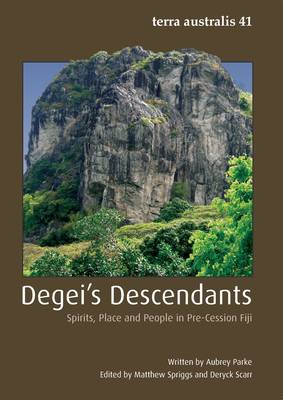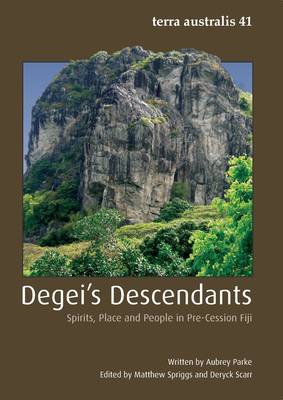
- Afhalen na 1 uur in een winkel met voorraad
- Gratis thuislevering in België vanaf € 30
- Ruim aanbod met 7 miljoen producten
- Afhalen na 1 uur in een winkel met voorraad
- Gratis thuislevering in België vanaf € 30
- Ruim aanbod met 7 miljoen producten
Zoeken
Degei's Descendants
Spirits, Place and People in Pre-Cession Fiji
€ 70,95
+ 141 punten
Omschrijving
Dr Parke's monograph examines how Fijians, especially in western areas of Fiji, currently understand and explain the origins and development of the social and political divisions of late pre-colonial traditional Fijian society. It assesses the reasoning, consistency and, where possible, the historical accuracy of such understandings. The oral history research which forms the backbone of the study was conducted in either standard Fijian or one or other of the western Fijian dialects with which Dr Parke was familiar. The period on which the monograph concentrates is the two centuries or so immediately prior to the Deed of Cession on 10 October 1874. A number of the major chiefs of Fiji had offered to cede Fiji to Queen Victoria; and after the offer had been accepted, Fiji became a British Crown Colony on that day. The volume will be of interest to all archaeologists, anthropologists and historians with an interest in Fiji. It will also be of wider interest to Pacific Studies scholars and those of British colonial history as well as historians with a wider interest in indigenous traditional histories and their role in governance today.
Specificaties
Betrokkenen
- Uitgeverij:
Inhoud
- Aantal bladzijden:
- 340
- Taal:
- Engels
- Reeks:
- Reeksnummer:
- nr. 41
Eigenschappen
- Productcode (EAN):
- 9781925021813
- Verschijningsdatum:
- 1/08/2014
- Uitvoering:
- Paperback
- Formaat:
- Trade paperback (VS)
- Afmetingen:
- 210 mm x 297 mm
- Gewicht:
- 1097 g

Alleen bij Standaard Boekhandel
+ 141 punten op je klantenkaart van Standaard Boekhandel
Beoordelingen
We publiceren alleen reviews die voldoen aan de voorwaarden voor reviews. Bekijk onze voorwaarden voor reviews.






